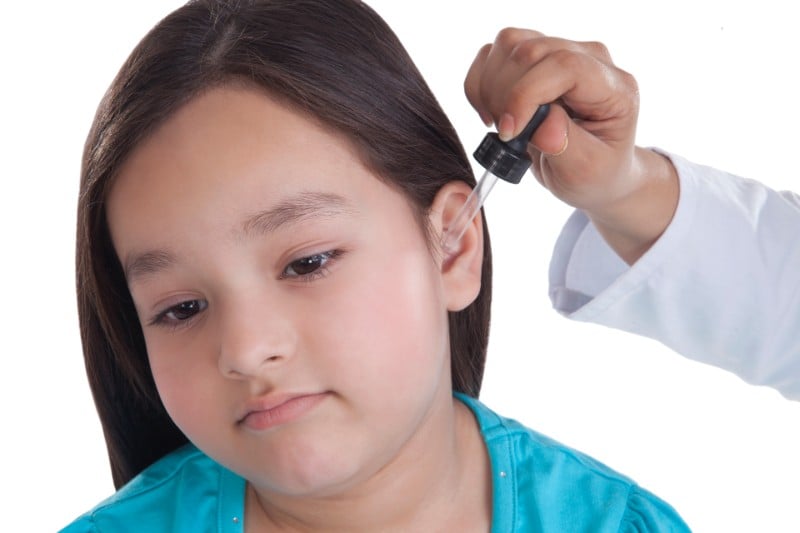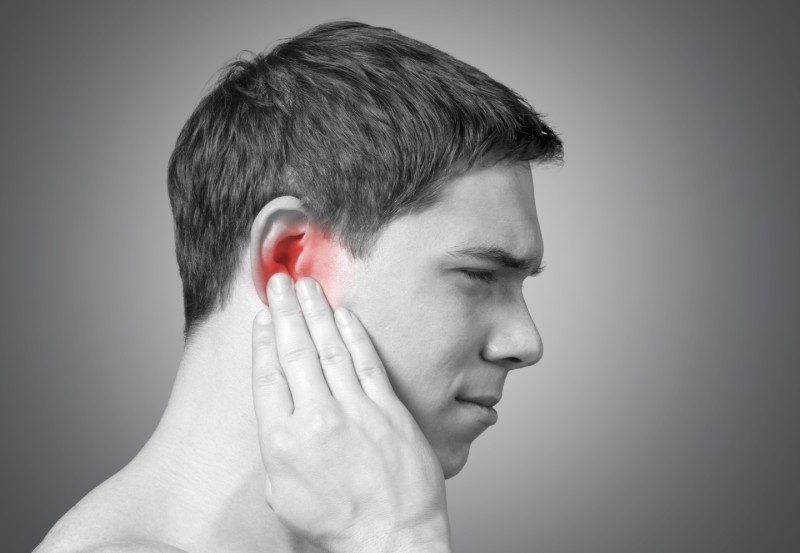Ear infections are one of the most common causes of ear pain. While minor ear infections may resolve on their own, only your physician can determine the best course of treatment. Your doctor may want to prescribe an antibiotic to help clear the infection and reduce the risk of complications. If not effectively treated, ear infections can lead to permanent hearing loss, eardrum perforations, or spread to surrounding tissues.
Until the infection resolves, ear infections can be quite uncomfortable. Ear infections can cause muffled hearing, ear drainage, and continuous pain. Knowing how to effectively manage ear infections at home can help alleviate a significant amount of misery.
Understanding the Pain of an Ear Infection
The lining of the middle ear, the air-filled chamber behind the eardrum, creates fluid to keep tissues moist. These fluids are drained through the eustachian tubes. When eustachian tubes become inflamed or blocked, fluids accumulate in the middle ear and create the ideal environment for bacteria to multiply, causing an inner ear infection (otitis media). The inflammation, fluid accumulation, and pressure behind the eardrum can cause a significant amount of pain. Since the eustachian tube also regulates the pressure on each side of the eardrum, the infection may also cause a feeling of fullness in the ear.
Infections of the outer ear (otitis externa) is most often caused by water that remains in the ear after swimming or bathing, but can also be caused by putting fingers or cotton swabs in the ear canal. Again, the moist environment creates an ideal environment for the growth of bacteria. Because outer ear infections are triggered by water or debris trapped in the ear canal, the resulting infection is commonly referred to as swimmers ear. Swimmers ear often starts as mild ear pain, but symptoms can escalate if the infection is not effectively treated. Untreated outer ear infections can cause pain that radiates to the neck, face, or skull while allowing the infection to spread.
Managing Ear Pain While Waiting for the Infection to Resolve
Whether the pain you, or your child, is experiencing is caused by an inner ear infection or an external ear infection, home treatment can help you manage ear pain while waiting for the infection to respond to treatment. Consider the following suggestions for managing ear pain:
-
Over-the-Counter Medications for Pain and Inflammation
Most doctors recommend using an over-the-counter pain reliever to alleviate the discomfort of an ear infection. Acetaminophen or ibuprofen are the most often recommended pain-relieving medications. While both options can effectively relieve pain, it may be helpful to know that ibuprofen also reduces the inflammation that could be contributing to ear pain. When using over-the-counter pain relievers to manage an ear infection, it’s important not to combine pain-relieving medications or exceed the recommended dosages unless directed by your physician.
-
Analgesic Ear Drops to Reduce Pain
 Your doctor may recommend using analgesic ear drops to minimize the pain caused by ear infections. These preparations commonly contain amethocaine, benzocaine, or lidocaine. In clinical trials, anesthetic ear drops are shown to provide prompt, temporary pain relief. While there are numerous herbal preparations on the market to alleviate earaches, there is little clinical evidence supporting the use of these products for alleviating ear pain. Most ear drops can be combined with oral pain-relieving medications.
Your doctor may recommend using analgesic ear drops to minimize the pain caused by ear infections. These preparations commonly contain amethocaine, benzocaine, or lidocaine. In clinical trials, anesthetic ear drops are shown to provide prompt, temporary pain relief. While there are numerous herbal preparations on the market to alleviate earaches, there is little clinical evidence supporting the use of these products for alleviating ear pain. Most ear drops can be combined with oral pain-relieving medications.
-
Using Heat to Alleviate Discomfort
The heat you rely on to soothe aching muscles can also help alleviate the pain of an ear infection. Moist heat is most often recommended. Applying heat in 20-minute intervals can provide significant pain relief. To apply heat to your ear, consider filling a hot water bottle with warm water, or saturate a small towel with hot tap water. After ringing out the water, hold the towel to the affected ear. For those who prefer using an electric heating pad, keep the temperature setting on low to reduce the risk of burns. Even on a low setting, heating pads should not be used while sleeping.
-
Using Cold Compresses to Reduce Inflammation
If heat is not providing adequate pain relief, applying cold may be the better option. Many people find that a cold compress to the outside of an infected ear quite soothing if the pain of the infection is the result of inflammation. Cold reduces inflammation and increases circulation in the affected area. Reducing inflammation can help accumulated fluids drain and reduce the amount of pain-inducing pressure within the ear. To reduce the risk of skin injury, ice packs should never be applied directly to skin. You may find significant pain relief by alternating between the application of heat and cold.
-
Elevating the Head During Sleep
When you are upright, gravity helps drain accumulated fluids. That’s why so many people waiting for an ear infection to heal find their ear pain intensifies when trying to sleep. Lying down increases the amount of pressure in the ears. Since remaining upright can encourage accumulated fluids to drain, it can be helpful to sleep in a reclining chair or use pillows to elevate the head and shoulders during the night. If additional pillows are not the best option, consider wedging the top portion of the mattress or raising the bed frame a few inches off the floor.
-
Over-the-Counter Decongestants
Nasal congestion and respiratory inflammation can trigger ear infections. When ear infections accompany a cold, sinus infection, or allergies, consider using a decongestant to help reduce ear pain. Decongestants reduce inflammation, allowing accumulated fluids to drain. With less pressure in the inner ear, pain levels decrease. Over-the-counter decongestants can also help alleviate ear pain when fluid causes pain, but there is no sign of infection.
Frequent Ear Infections May Require Additional Intervention
 While most people will get at least one ear infection at some point during their lifetime, a significant number live with recurring ear infections. For frequent or severe ear infections in children and adults, or ear infections that do not resolve with antibiotics, doctors commonly refer patients to an ear, nose and throat specialist.
While most people will get at least one ear infection at some point during their lifetime, a significant number live with recurring ear infections. For frequent or severe ear infections in children and adults, or ear infections that do not resolve with antibiotics, doctors commonly refer patients to an ear, nose and throat specialist.
If you believe you need additional intervention for frequent ear infections, contact an ears, nose, and throat doctor. These physicians specialize in ear, nose and throat disorders, providing the highest level of patient care with cutting edge equipment and surgical techniques.

